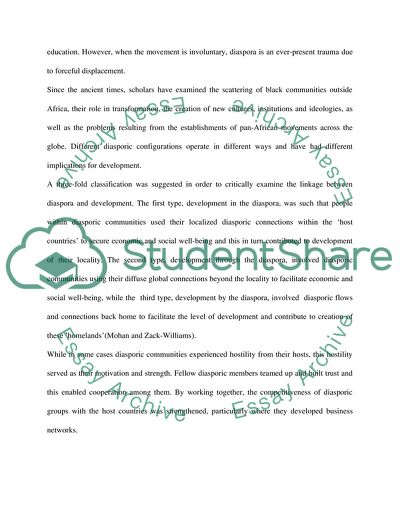Cite this document
(Globalization, Survival, and Empowerment in the African Diaspora Report Example | Topics and Well Written Essays - 1250 words, n.d.)
Globalization, Survival, and Empowerment in the African Diaspora Report Example | Topics and Well Written Essays - 1250 words. https://studentshare.org/sociology/1804312-globalization-survival-and-empowerment-in-the-african-diaspora-section
Globalization, Survival, and Empowerment in the African Diaspora Report Example | Topics and Well Written Essays - 1250 words. https://studentshare.org/sociology/1804312-globalization-survival-and-empowerment-in-the-african-diaspora-section
(Globalization, Survival, and Empowerment in the African Diaspora Report Example | Topics and Well Written Essays - 1250 Words)
Globalization, Survival, and Empowerment in the African Diaspora Report Example | Topics and Well Written Essays - 1250 Words. https://studentshare.org/sociology/1804312-globalization-survival-and-empowerment-in-the-african-diaspora-section.
Globalization, Survival, and Empowerment in the African Diaspora Report Example | Topics and Well Written Essays - 1250 Words. https://studentshare.org/sociology/1804312-globalization-survival-and-empowerment-in-the-african-diaspora-section.
“Globalization, Survival, and Empowerment in the African Diaspora Report Example | Topics and Well Written Essays - 1250 Words”. https://studentshare.org/sociology/1804312-globalization-survival-and-empowerment-in-the-african-diaspora-section.


